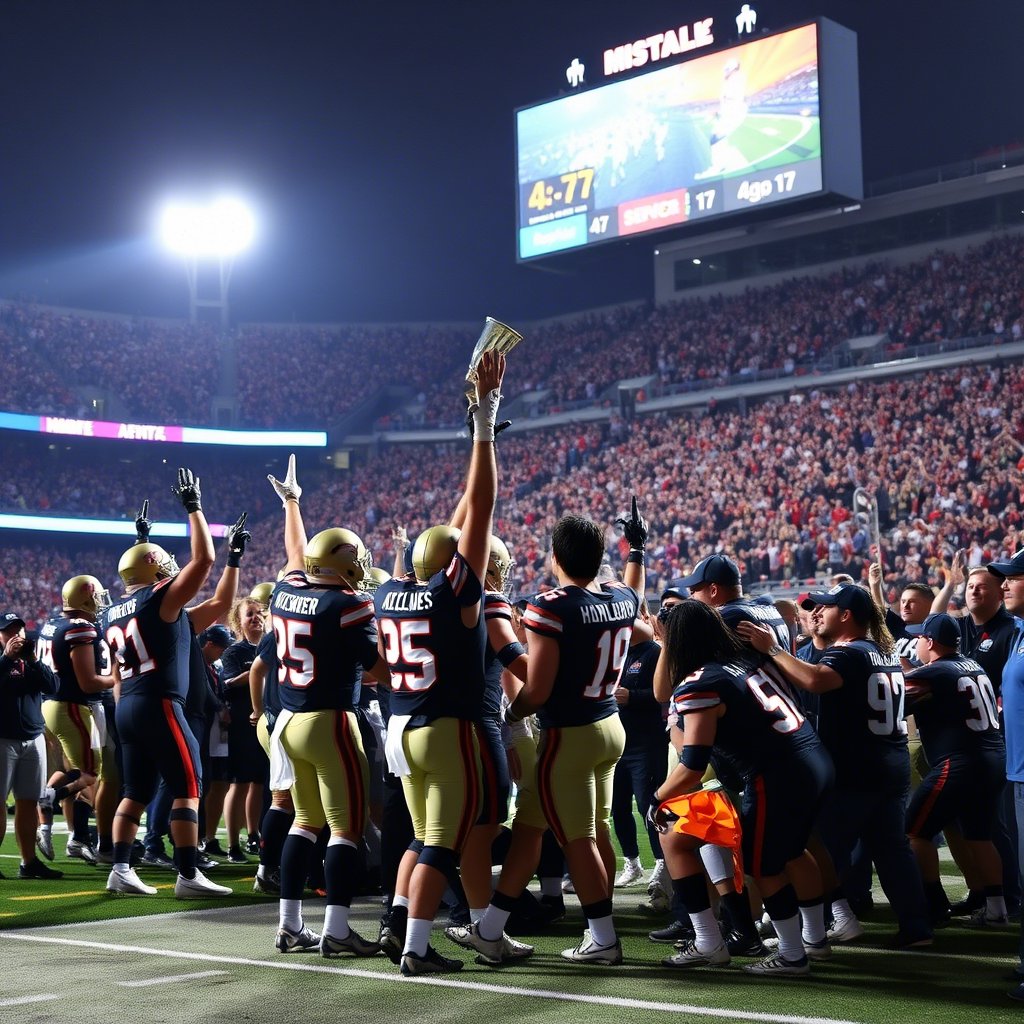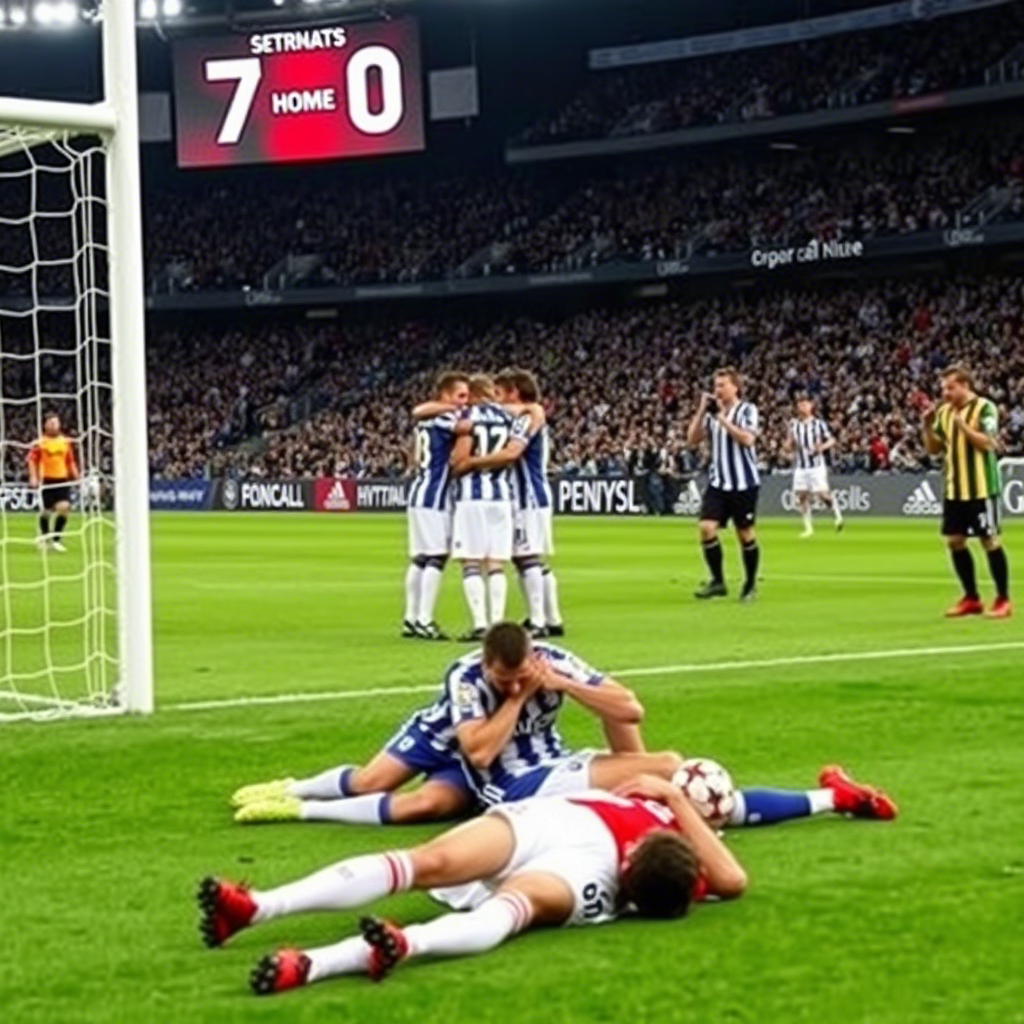As sports enthusiasts, we’ve all witnessed those games where one team seems invincible, leaving their opponents in the dust. These are what we call blowouts—lopsided victories that can be both exhilarating for the winners and demoralizing for the losers. But how do teams handle these situations? Let’s dive into the world of blowouts in sports.

Introduction
Imagine being part of a game where your team is either crushing it or getting crushed. It’s a common scenario across various sports, from football to basketball and hockey. Blowouts raise questions about sportsmanship, strategy, and how they impact future performances. Have you ever wondered why some teams continue to push hard even when they’re far ahead? Or how losing by such a large margin affects morale?
Blowouts are more than just one-sided wins; they often highlight significant disparities between teams’ skills or strategies. For instance, in 1916, Georgia Tech famously defeated Cumberland College 222–0 in what remains one of the most extreme examples of a blowout in college football history. Such games can lead to discussions about ethics and whether it’s fair to “run up the score.”
Understanding Blowouts
The Psychology Behind Blowout Games
From a psychological standpoint, blowout games can have profound effects on players’ mental states:
-
Winners: Teams that win by large margins often experience an immediate boost in confidence and morale. However, there’s also a risk of complacency if not managed properly.
-
Losers: Conversely, losing by such margins can lead to frustration and decreased motivation among players.
Historical Examples
Some historical examples illustrate just how dramatic these disparities can be:
-
Georgia Tech vs Cumberland College (1916): As mentioned earlier this game ended with an astonishing score of 222–0.
-
Chicago Bears vs Washington Redskins (1940): The Bears won this NFL championship game with an equally impressive margin of 73–0.
These extreme cases highlight issues around competitive balance but also serve as reminders that every game offers opportunities for growth.
Handling Blowouts with Grace
Whether you’re on the winning side or not there are ways to navigate these situations gracefully:
Sportsmanship
If you’re winning big consider resting key players during “garbage time” (the final minutes of an already decided game) not only as an act of respect but also to prevent injuries.
Example: In basketball coaches might pull starters early allowing bench players valuable court time while maintaining respect towards opponents.
Learning Opportunities
Use blowout losses as chances for younger players or reserves to gain experience under real-game conditions:
-
This approach helps build depth within your roster which is crucial over long seasons.
-
It also keeps fans engaged seeing new faces contribute meaningfully even if it’s late in a lost cause.
Fan Engagement
Fans often enjoy seeing reserve players get playing time during blowout situations—it keeps them engaged and excited for future matches:
-
Fans appreciate seeing potential stars develop which fosters loyalty towards their favorite teams.
-
Additionally giving fans something positive amidst defeat helps maintain morale within fan communities.
Strategies for Managing Momentum
While momentum might seem like an intangible force its impact should not be underestimated especially after significant wins or losses:

-
Rebounding from Losses: Use defeats as learning experiences focusing on areas needing improvement rather than letting them define future performances.
-
Staying Humble: Avoid complacency post-victory recognizing each opponent presents unique challenges regardless of past outcomes.
-
Building Resilience: Cultivate resilience within your team understanding setbacks are temporary obstacles toward ultimate success goals.
-
Adapting Strategies:
-
Post-blowout victories reassess strategies ensuring adaptability against different opponents.
-
After significant losses analyze mistakes made identifying areas requiring tactical adjustments before next matches begin.
-
Impact on Future Performance
Interestingly research suggests that winning or losing by a large margin doesn’t necessarily influence subsequent game performance significantly This challenges common perceptions about momentum carrying over from one game to another Here’s why:
-
Momentum Myth: While many believe momentum plays a huge role studies show little correlation between previous results (especially lopsided ones) and upcoming match outcomes.
2.Preparation Overcomes Past Results: Teams focusing diligently on preparation regardless past results tend perform better moving forward compared those relying heavily perceived momentum swings.
Personal Stories: Overcoming Adversity
Sometimes personal stories offer powerful insights into handling adversity including dealing with severe setbacks like massive defeats Here’s one inspiring tale:
In his early days LeBron James faced numerous tough losses including some severe beatings However he used each loss as fuel pushing himself harder leading ultimately become NBA champion multiple times His journey shows resilience triumphing adversity
Similarly other athletes have turned major setbacks into stepping stones toward greatness demonstrating strength character face adversity head-on
Conclusion
Blowouts might seem like anomalies in sports but they offer valuable lessons on resilience strategy Whether your team soaring high victory facing defeat graciously remember every provides opportunities growth—both field So next watching playing lopsided match-up away insights embrace moment part journey excellence!
-
: What is a blowout in sports?
-
A: A blowout or rout is an easy or one-sided victory where one team outscores another by a large margin, often leaving the losing team with little chance of winning1.
-
-
: How do coaches handle blowouts?
-
: Do blowouts affect future game performance?
-
A: Research suggests that winning or losing by a large margin does not significantly influence subsequent game performance, challenging the idea of momentum carrying over from one game to another2.
-
-
: What are some strategies for teams facing potential blowouts?
-
: How do fans react during blowout games?
-
: Are there any rules to prevent extreme disparities in scores (e.g., mercy rule)?
-
A:
Yes, many leagues implement a “mercy rule” where games end early once a certain score differential is reached to avoid humiliation and maintain player safety3.
-
-
: Can coaches use blowout situations as learning opportunities?
-
A:
Yes! Coaches can use these situations to work on specific skills like ball handling or position flexibility for their players while maintaining respect towards opponents3.
-
-
Q : How do media coverages portray teams involved in significant victories?
A: Media coverage often highlights triumphs of winning teams while focusing on mistakes made by losing ones during such matches2.
